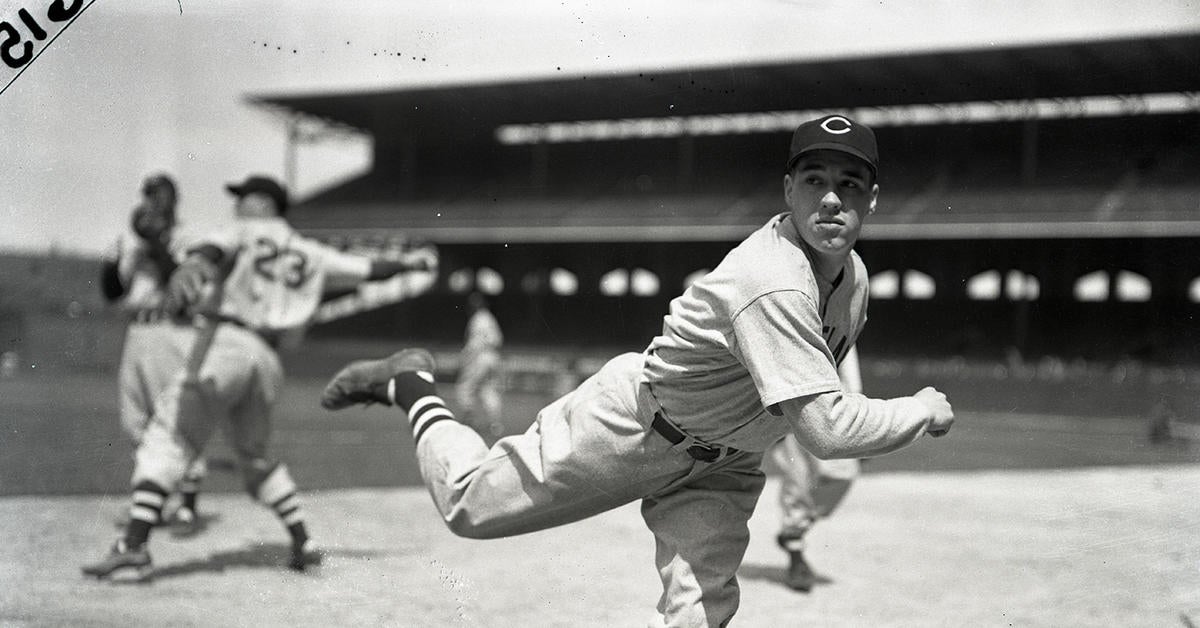senoiajacket
Helluva Engineer
- Messages
- 1,130
Watching the Braves vs Phils last night and listening to the broadcaster (mainly Smoltz, I think) talk about the "what had changed" to take Kyle Wright from "struggling top 5 pick" his first 4 years to leading the majors in wins his 5th year made me contemplate if some of the same things that lead to Wright's hard time might not be affecting the development of some of our pitchers. Smoltz was comparing and contrasting Wright's style of pitching (especially the high % of curveballs he threw this year in games) to his mound opponent, Zach Wheeler (who was pretty good last night too). What I latched onto was the statement Smoltz made that (paraphrased) "Wright was following the analytics, which caused him to stray from the talents/abilities/pitches that had made him so successful in college and caused him to be the high draft pick in the first place". Maybe it is confirmation bias on my part b/c in my mind I have correlated the increased discussion of advanced analysis techniques (especially spin rate) with the "underperformance" (from my perspective, but I think most would agree with the use of this term) of our pitchers the last couple of years.
I wanted to know more about what "analytics" they were talking about, so I looked up some articles on Wright's turn around. Most of them focus on lost confidence and "returning to who he was", but I did find one article (https://theathletic.com/3272361/202...om-frustrated-braves-prospect-to-budding-ace/) where Wright referenced that he was influenced by analytics to move away from what had made him successful.
"Early in pro ball, my first year, I was still mostly curveball. But that was the time when analytics really started to take over with the (emphasis on) fastballs up, hard sliders down. So I had my cutter; it was solid. It was a good pitch. I was having a lot of success with it. But it just wasn’t consistent. But I kind of stuck with using that for really the rest of 2018, ‘19 and even some of ‘20."
So basically, what he is saying is that analytics, developed from data for a large group of pitchers (my emphasis, not his), convinced him that he should do something different for better results. As a result, he got away from what he was really good at and when he returned to that, the level of performance returned. I would submit that the return of confidence may have also been due to the fact that he returned to what he had success with before and was comfortable with, resulting in him trusting in himself more. The analytics are developed based on the masses and averages, but everyone is unique.
Could it be that our pitchers are being asked to make changes to what made them good in the first place? In some cases, maybe that is necessary. Maybe what made them good in the first place can only get them to a certain level and no further and they have to make changes in order to break out to the next level. Or maybe, what they are good at is enough for success at the collegiate level (and perhaps beyond) but we are using the cookie cutter of analytics to try and make them into something they aren't.
I 100% understand it is a huge leap from high school and travel ball (well, maybe not travel ball?) to college and that a lot of guys will need to make changes, add things, learn how to get by on more than raw talent, etc. in order to be successful. But there is a core of elite talent that caused them to recruit them in the first place. Are we asking them to mess with that core elite talent?
There are lots of folks on here who know way more about pitching that I do. But I have wondered, for instance, if an emphasis in increasing spin rate, at the expense of being able to locate a pitch ...... or other tradeoffs might be occurring? It's never that simple, I'm sure.
DBo has a career's worth of data that he is relying on that says what he is doing works, at least at the minor league level. And I am just looking at it from a layman's standpoint. But taking Kyle Wright as an example, if you start with elite talent, maybe we just need to let the elite that got our pitcher's here in the first place be the predominant factor in letting them succeed ...... adding in stuff as necessary to augment it, but not taking them away from what made them successful?
I wanted to know more about what "analytics" they were talking about, so I looked up some articles on Wright's turn around. Most of them focus on lost confidence and "returning to who he was", but I did find one article (https://theathletic.com/3272361/202...om-frustrated-braves-prospect-to-budding-ace/) where Wright referenced that he was influenced by analytics to move away from what had made him successful.
"Early in pro ball, my first year, I was still mostly curveball. But that was the time when analytics really started to take over with the (emphasis on) fastballs up, hard sliders down. So I had my cutter; it was solid. It was a good pitch. I was having a lot of success with it. But it just wasn’t consistent. But I kind of stuck with using that for really the rest of 2018, ‘19 and even some of ‘20."
So basically, what he is saying is that analytics, developed from data for a large group of pitchers (my emphasis, not his), convinced him that he should do something different for better results. As a result, he got away from what he was really good at and when he returned to that, the level of performance returned. I would submit that the return of confidence may have also been due to the fact that he returned to what he had success with before and was comfortable with, resulting in him trusting in himself more. The analytics are developed based on the masses and averages, but everyone is unique.
Could it be that our pitchers are being asked to make changes to what made them good in the first place? In some cases, maybe that is necessary. Maybe what made them good in the first place can only get them to a certain level and no further and they have to make changes in order to break out to the next level. Or maybe, what they are good at is enough for success at the collegiate level (and perhaps beyond) but we are using the cookie cutter of analytics to try and make them into something they aren't.
I 100% understand it is a huge leap from high school and travel ball (well, maybe not travel ball?) to college and that a lot of guys will need to make changes, add things, learn how to get by on more than raw talent, etc. in order to be successful. But there is a core of elite talent that caused them to recruit them in the first place. Are we asking them to mess with that core elite talent?
There are lots of folks on here who know way more about pitching that I do. But I have wondered, for instance, if an emphasis in increasing spin rate, at the expense of being able to locate a pitch ...... or other tradeoffs might be occurring? It's never that simple, I'm sure.
DBo has a career's worth of data that he is relying on that says what he is doing works, at least at the minor league level. And I am just looking at it from a layman's standpoint. But taking Kyle Wright as an example, if you start with elite talent, maybe we just need to let the elite that got our pitcher's here in the first place be the predominant factor in letting them succeed ...... adding in stuff as necessary to augment it, but not taking them away from what made them successful?



